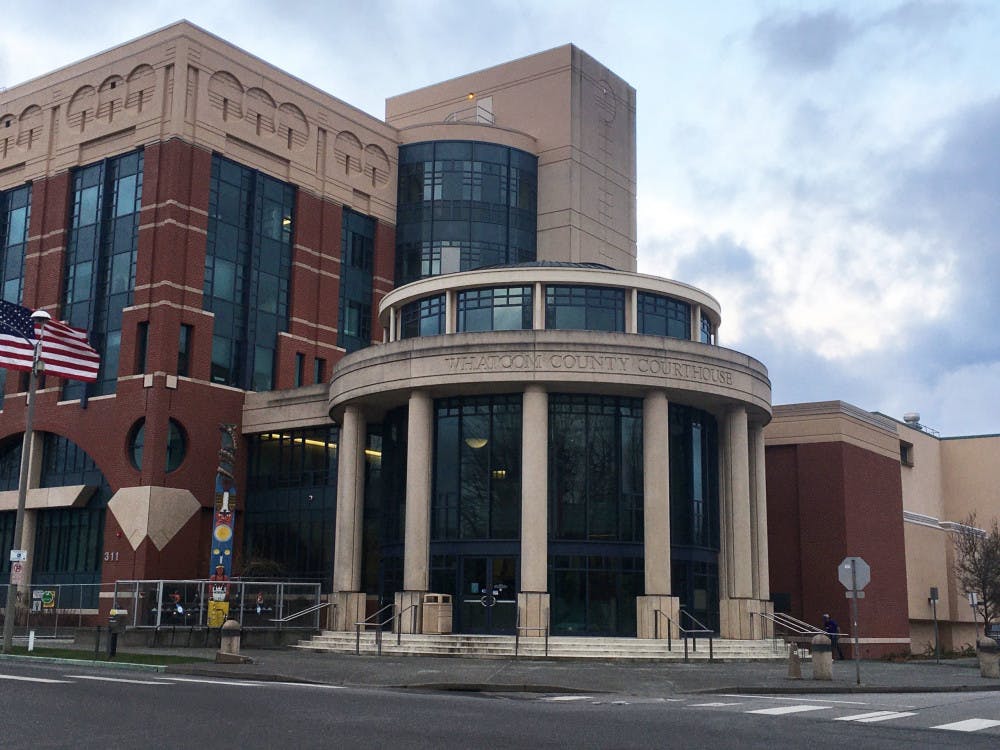
A group of anonymous students are expected to file motions in a public records lawsuit this Friday, bringing the case — which seeks to make public the names of students found responsible for sexual misconduct — one step closer to its conclusion.
The group consists of seven current or former Western students, who have filed injunctions in an attempt to block the release of their names.
The case began in May 2019, when one former and two current Western journalism students filed a lawsuit, alleging that by refusing to release documents with the unredacted names of students found responsible for sexual misconduct, Western is in violation of the state’s Public Records Act.
That summer in 2019, seven of the people named in those documents filed an injunction, and are now engaged in a legal battle to prevent the release of their names. They argue that their identities are protected under federal law, raising questions about individual privacy and the public's right to information.
Student educational records are protected under the Family Educational Rights and Privacy Act (FERPA), but there is a notable exception for records relating to crimes of violence or a non-forcible sex offense.
Part of the student’s argument rests on the state of Washington’s Public Records Act, which requires agencies to produce public records upon request. Some records are exempt from that rule, including information that, if disclosed, would be “highly offensive to a reasonable person” and “not of legitimate concern to the public.”
Stephen Jackson, a lawyer representing four of the people seeking to conceal their identities, said the exemption applies to this case.
“I don’t think it is in the public interest to be releasing the names of students who were involved in code of conduct violations,” he said. “Particularly code of conduct violations which are quasi-judicial proceedings that, as far as I know, aren’t public. So it’s not like you’re going through the criminal justice system that we all expect.”
Western alumna Asia Fields, a reporter at The Seattle Times (which is not a party to the suit), was one of the three journalism students who filed the lawsuit seeking the names of those students. She said the students’ names are in the public interest.
“I think most people would agree that it’s certainly in the public interest to know if someone on your campus, if someone in your dorm room has been found guilty of sexual misconduct,” she said.
While reporting for The Western Front, Fields said she and her colleagues filed a number of public records requests, hoping to better understand how the university handles sexual misconduct. The university released the information, but with the names of the perpetrators redacted.
“It just felt strange that, even though we’re all adults on a college campus, these cases were being handled internally by the school,” Fields said. “And there was no way to really find out if someone had been found responsible of a horrible sexual assault.”
Fields and two other Western journalism students launched the lawsuit against the school as independent journalists, with legal help from the Student Press Law Center. Along with the release of the unredacted documents, the lawsuit also aims to compel the school to pay for court fees, and award financial penalties for each day Western improperly withheld the requested records, according to documents from the case.
Fields said access to the names is important not just for student safety, but also to ensure the school is handling disciplinary proceedings in an equitable way.
“If it’s a student athlete, are they treating them differently than they would another student?” she said. Having access to the names of responsible students would potentially allow journalists to check for racial and other biases.
It is unclear exactly how many of the people identified in the documents still attend Western. Fields and her former colleagues are suing for access to the names of students found responsible for violations between Oct. 10, 2013 to Oct. 10, 2018.
“In most cases that I can see, the people are far beyond the incident,” Jackson said. “They’ve moved past the incident. The net that was thrown out by the students is catching people who’ve been out of college for several years and are well into their careers. I don’t know what public good that is.”
Fields said she and the other plaintiffs are seeking a total of 30 names. Eighteen were identified by Western as having findings for sexual misconduct, and 12 had findings for violence.
Shortly after the lawsuit was filed, Western sent letters to the people named in the documents, Bill Crittenden, the attorney representing Fields and the other plaintiffs, said. The letters informed the students that the school intended to release their names, and that if they wished to stop the release of their records, they could take legal action and seek a permanent injunction against the school.
So far, only seven students have chosen to intervene. According to Crittenden, Western has already given the plaintiffs access to the names of the other 23 students. Fields said she feels this is unfair to the other students named in the records, who might have chosen not to file an injunction because they were unable to afford an attorney.
A large part of the case centers on FERPA, which allows for the release of educational records relating to crimes of violence or a non-forcible sex offense. Jackson argues that Western’s definition of these offenses is far broader than FERPA.
“A crime of violence in the federal system is very clearly delineated as to what that is,” he said. “Whereas Western’s code of conduct captures a lot more.”
FERPA has been the subject of a number of recent court cases, including in North Carolina where students from the University of North Carolina’s newspaper The Daily Tar Heel sued the school over access to names of people found guilty of sexual offenses. The case has made its way to the Supreme Court of North Carolina, which is expected to issue an opinion soon, according to Frank LoMonte, the former executive director of the Student Press Law Center.
LoMonte has dealt with a number of similar cases involving FERPA, and said the law is sometimes distorted in a way that limits freedom of information.
“Because it is just poorly written, it has been subject to interpretations by attorneys and judges that are all over the map,” he said. “And there’s no consistent guidance from the courts as to what is and isn’t covered by FERPA.”
LoMonte said public records requests are an important tool for keeping watch over the disciplinary system and ensuring that perpetrators are being punished fairly.
The next court date for this lawsuit is scheduled for March 2. According to Jackson, the case is approaching its conclusion, though he suspects the decision may be appealed.
This story was updated on Jan. 23, 2020, to resolve grammatical errors.

Nate Sanford is the editor-in-chief of The Western Front and a fourth-year news/editorial journalism major. His reporting focuses on the environment, local politics, urban policy and anything else that matters. His writing has appeared in Crosscut, the Inlander, Whatcom Watch and at least one desk in Haggard Hall. You can find him on Twitter @sanford_nate and at natesanford.westernfront@gmail.com.





